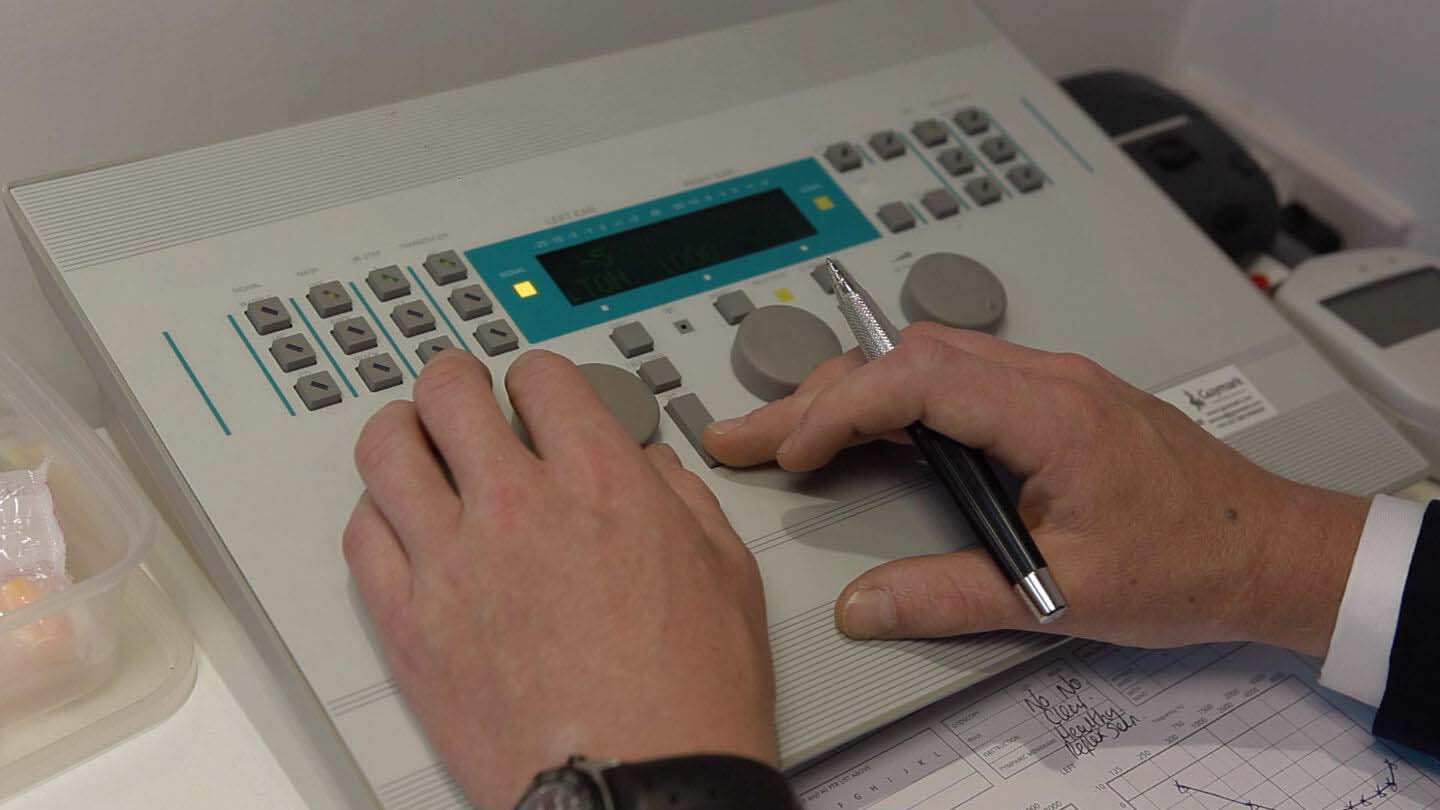How to talk to someone with hearing loss
Who's responsibility is a hearing loss? Is it the person with the hearing problem or the person trying to speak to them? My answer: it's both. People with hearing loss cannot reasonably expect the rest of the world to fall over themselves to make themselves heard, but equally, anyone trying to hear in difficult circumtances should be shown the respect they deserve and given every chance to communicate verbally.
Below are some tips for communicating with someone with a hearing problem.
Get their attention before you start speaking
If the person with hearing loss missed the start of your sentence they are already playing catch-up and trying to work out what you said to start with whilst they are missing what you are saying now. Get in front of them where they can see you, start with a "hello" and leave a pause before you get going.
Hearing, listening and understanding is hard work for someone with hearing loss, give them a chance by making sure they are concentrating on what you are about to say.
Let them see your mouth when you are talking
Many people with hearing problems use lipreading to help them understand what is being said. It's surprising how useful lipreading is and how accurate someone can be when they've been reading lips for a long time.
So make sure they can see your mouth so that they can lipread if needed. Don't cover your mouth with your hand and try not to be self-conscious if your lips are being studied - I know it can be a bit disconcerting but it is very helpful for them.
Be mindful of background noise
Just because I heard you yesterday when we met by the shop does not mean I am going to be able to hear you right now in the noisy restaurant. Background noise makes a huge difference to speech understanding, particularly when there are lots of people talking at once, this makes it hard for both the hearing aids and the wearer to pick out and concentrate on your voice.
It is easy to forget someone has a hearing loss, it is invisible after all.
DON'T SHOUT OR EXAGGERATE YOUR WORDS
It can be frustrating trying to talk to someone who can't hear you, I get that. Don't start shouting at them, they didn't hear you at your normal volume so you went straight to a foghorn, ain't going to help, it'll just annoy them and make them feel stupid and it probably won't even be easier to hear as your voice will become strangled and rough when you shout.
"CAN. YOOOOOOOOU. HEEEEEEEEAAAAAAR. MEEEEEEEEEEEEEEEE?"
Yes friend, hilarious, doing the comical over-exaggeration is absolutely side-splittingly funny for anyone who is working hard to try and understand you. Please don't do that.
Try speaking a bit louder, try to fully pronounce each word with maybe a little gap in between them.
If You Find The Information on This Page Helpful, Please Rate The Page
Your Ratings allow us to understand if the info we provide is helpful
Rate this article
(Rated 5 stars by 12 people)





Rephrase your sentences
If someone asked you to repeat yourself there is a good chance that they heard some of what you said but not enough to get an understanding. A person's hearing loss is usually at different severities for different sounds, for example, they may be able to hear lower pitch sounds very well but struggle with higher pitches. So they may hear a lot of what you said but either missed some words entirely or maybe just parts of words, with a higher-pitch hearing loss the word "shout" would be difficult but "dog" could be heard much easier.
So, rephrasing what you said can be really helpful rather than just repeating the same thing, it can allow them to piece together the whole sentence to get a full understanding.
Ask them
Sometimes people will try and bluff their way through a conversation, to pretend they are hearing everything when they are not - and when I just said "sometimes" I meant "often". It is common for people to prefer to pretend to hear rather than admit they can't.
What people with hearing loss usually don't realise that it is easy for someone to spot that they are not hearing properly. It only takes a couple of "yes" answers in the wrong place or an awkward laugh when you didn't hear for the speaker to realise something is wrong.
If you feel comfortable you could ask them if they are hearing you OK and maybe they want to move the conversation to somewhere quieter or for you to speak up. That might be the catalyst for them to realise that pretending to hear is a fool's games and things are easier when they mention it to people.
Groups situations are tougher
Group conversations are much harder for someone with hearing loss. Typically you are going to have a number of people talking from different angles and maybe more than one person at a time. It can be really easy to lose track of the conversation.
Another problem with group conversations is "localisation", which is basically determining where the voice is coming from, people with a hearing loss often lose the ability to accurately locate a sound, so even if they heard you they might be looking around the group to see who said their name.
Saying the person's name before you speak to them in the group will help them a lot, so will looking at them, maybe giving a little nod or some other visual clue that you are going to speak to them.
Communication is a two-way thing
Being able to communicate verbally is a two-way responsibility. The person with hearing loss needs to make an effort to hear, that might mean wearing a hearing aid, letting you know about their problem, lip-reading, moving somewhere quieter, asking you to repeat, etc. But also the speaker needs to put in some effort to make themselves heard, maybe using some of the ideas mentioned above. If you are both invested in having a good chat then you both try and bring down the barrier of hearing loss.
Posted by Steve

Steve Claridge



I have been wearing hearing aids since I was five years old, when a mild hearing loss was first diagnosed - now aged 45, that mild loss has progressed to a severe one and I rely on some pretty awesome hearing aid technology to be able to stay in the conversation. I'm passionate about helping people to understand hearing loss, hear more and communicate more easily.


